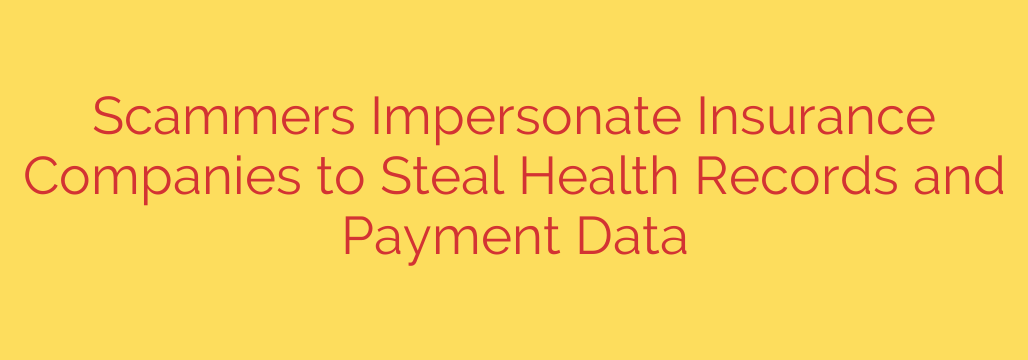
A significant threat is emerging targeting unsuspecting individuals: malicious scammers are actively impersonating legitimate insurance companies. Their sophisticated tactics aim to trick you into revealing highly sensitive information, primarily your health records and vital payment data.
These cybercriminals often reach out through convincing-looking emails, text messages, or even phone calls that appear to come from your health insurer. They might claim there’s an issue with your policy, a pending claim, or request updated information “for security purposes.” Their goal is to extract protected health information (PHI), which can be exploited in various ways, and financial details like credit card numbers or bank account information, leading directly to financial theft and identity theft.
Protecting yourself is crucial. Always be extremely cautious of unsolicited contact demanding personal or financial information. Before sharing anything, verify legitimacy directly with your insurance provider using contact information you know is correct – from their official website or the back of your insurance card, not from the suspicious communication itself. Do not click on links in emails or texts that seem questionable. Never provide sensitive information over the phone unless you initiated the call and are certain of who you are speaking with. Regularly monitor your bank statements, credit card bills, and explanations of benefits (EOBs) for any unauthorized activity. If you suspect you’ve been targeted or compromised, report it immediately to your insurance company and relevant authorities. Staying informed and vigilant is your best defense against these predatory schemes.
Source: https://go.theregister.com/feed/www.theregister.com/2025/06/27/patients_providers_records_payment_scam/








